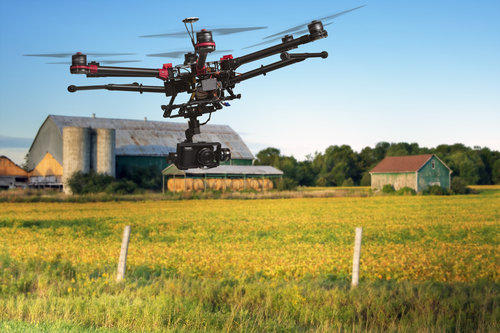Drones help farmers save time and money
By Diego Flammini
Assistant Editor, North American Content
Farms.com
Knowing exactly when to apply fertilizers or harvest can save farmers time and money, and that’s the goal of a Winnipeg drone company.
M3 Aerial Productions is in its first year of project Green Gold which is designed to determine the precise times perform certain farming duties.
“Drones are revolutionizing the industry. It’s an interesting thing,” Matthew Johnson, M3’s owner told CBC.

Fixed-wing drones use NDVI to breakdown photosynthetic light that plants reflect.
Johnson said sensors in the drones pick up the light and convert it into useful data; farmers use the data to determine what needs to go on their fields.
The data can highlight an area with below-par growth, allowing the farmer to apply fertilizer to the specific spot compared to broadcasting fertilizer on the whole field. Johnson said it can save farmers money on chemicals, and overhead planes or satellites.
Johnson said some farmers haven’t totally warmed up to the idea and his company is receiving different reactions but is hopeful that as the technology advances, farmers will support it.
“Agriculture is one of the most prevalent industries in Manitoba that I felt would be the best use of resources,” he told CBC.
Depending on the size of the drone, users may need a licence from Transport Canada.